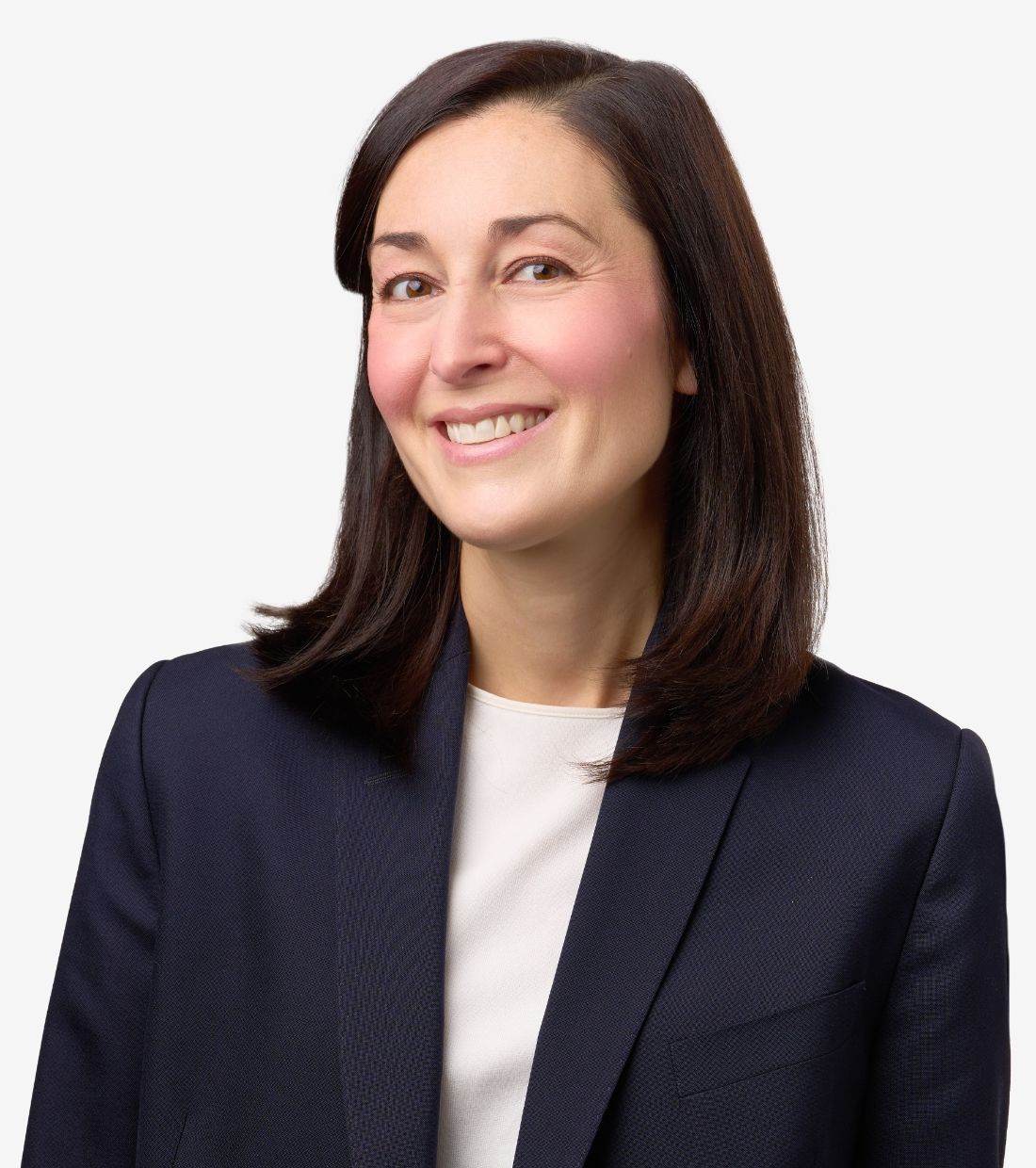Timothy Foden and Kristen Young of Boies Schiller Flexner are setting key precedents in International Arbitration
International arbitration is a busy field these days, with many arbitral institutions seeing a record number of new cases in the last two years. Resource price booms and the political agendas of newly installed military juntas have fed into a trend towards resource nationalism in some countries and international investors who were once hesitant to bring claims against sovereign states have been increasingly resorting to international arbitration to vindicate their rights. As a result, investors are increasingly utilizing bilateral and multilateral investment treaties to sue governments over lost investments.
Boies Schiller Flexner, ever keeping in step with the needs of the disputes market, is currently handling a portfolio of commercial and investor-state arbitration valued at more than $13B, representing clients in disputes before all the leading international arbitral institutions. One of Boies Schiller Flexner’s current international arbitration stars, practice co-leader Timothy Foden, recently obtained a landmark $90M settlement on behalf of Australian mining company Indiana Resources against Tanzania. He also helped GreenX Metals obtain a multi-million pound award in an investment treaty claim against Poland over the obstruction of a coal project. Foden notes that the resource nationalism trend took root in Tanzania, spread across the “Coup Belt,” and is now catching on in parts of Latin America and even Europe. But, he says, “these countries are jumping on the trend without taking note of the consequences down the line.”
The international arbitration practice is by no means new for the firm. From its earliest days in the late 1990s, Boies Schiller Flexner has represented clients before all major arbitral institutions. Firm co-founder Jonathan Schiller, who co-leads the international arbitration practice, was part of a team that successfully represented Westinghouse Electric Corporation in an ICC arbitration in which the Philippines alleged that Westinghouse had bribed President Ferdinand Marcos to obtain a nuclear power plant order. The tribunal held that there was no evidence of corruption.
Foden joined the firm’s London office in 2022. He began his career with the U.S. Court of Appeals for the 11th Circuit and as an associate at Crowell & Moring in Washington, D.C. He moved to the U.K. in 2011 to work for Allen & Overy (now A&O Shearman), where he led the first investment arbitration claims against Spain under the Energy Charter Treaty (ECT) before spending several years at Quinn Emanuel and then acting as Managing Partner for the newly opened London office of the Swiss arbitration boutique LALIVE. At Boies Schiller Flexner, he has focused primarily on disputes in the mining and energy sectors including investment arbitration claims against sovereign states.

Another prominent lateral hire, Kristen Young, joined Boies Schiller Flexner in February 2024 with more than 17 years of experience in international arbitration as an associate and then partner at White & Case in Washington, D.C., and Paris. During her career, she has successfully represented clients in billions of dollars’ worth of claims arising under numerous bilateral investment treaties, free trade agreements and the ECT, including the first two international treaty arbitrations dismissed on grounds of corruption. Young has extensive experience representing both respondent states and claimant investors across leading arbitration forums.
Lawdragon sat down with the two partners to discuss resource nationalism and their recent successes representing investors against sovereign states in international arbitration.
Lawdragon: You’ve worked a lot in the mining sector in recent years. Can you talk about the trends that you’re seeing in that space?
Tim Foden: Since 2015-16, we have seen a 1970s-style resurgence in resource nationalism, particularly across Africa, and, to a certain extent, Latin America, but even in parts of Europe. We recently obtained a $331M award for a foreign investor in an arbitration against Poland where a change in government ultimately resulted in the nationalization of certain of the country’s coal assets. States can adopt a resource nationalistic model but, when this infringes on protected investments, you’ve got to pay the investors.
The resource nationalist trend in the mining sector in Africa kicked off in 2016 with the election of John Magufuli as the President of Tanzania. Other African countries followed suit. What Kristen and I are dealing with in large part now is the fallout from other countries trying to get in on that trend.
We’ve had a number of successes representing investors in treaty claims against Tanzania. In 2023, we obtained a $30M settlement on behalf of Winshear Gold, a Canadian mining company. Last year, we obtained a $90M settlement on behalf of Indiana Resources, an Australian mining company and a $27M settlement on behalf of Montero Mining, another Canadian mining company. We also issued a notice of dispute to Tanzania on behalf of another client for a $1.2B investment treaty claim in respect of a natural gas asset.
Whilst several countries have adopted a resource nationalist model inspired by Tanzania, they did not consider the price tag associated with that kind of approach. But we are now starting to see that the resource nationalist model is proving very costly for sovereign states.
Kristen Young: We’re doing a lot of work in Francophone Africa, particularly in West Africa, where there have been a series of coup d’états since 2020. What has accompanied these military juntas seizing power is both a nationalistic agenda and the need to fill Covid-sized holes in their budgets. Leaders are looking at revenues generated by the mining industry as a means to fill those holes. In Burkina Faso, for example, we have seen the military leader announce recently the withdrawal of mining concessions, asserting: “We know how to mine our gold.”
We’re currently working with clients to prepare for potential action that might be taken against their assets, and then bringing cases on their behalf when actions are taken. We recently commenced ICSID arbitration proceedings against Burkina Faso under the Canada-Burkina Faso bilateral investment treaty on behalf of Sarama Resources Ltd, a Canadian mining company whose mining assets were expropriated by the military junta in 2023.
It is surprising how many companies do not even consider the importance of treaty protection – they structure their investments in such a way to ensure the best possible tax treatment, but the reality is that tax only matters when making a profit.
LD: Your win for investors against Tanzania on behalf of Indiana Resources was unprecedented. Could you talk about the importance of the decision and the message that it’s sending to investors and sovereign states?
TF: We obtained an arbitral award amounting to about $110M inclusive of interest for our client Indiana Resources in its dispute against Tanzania over the revocation of its nickel mining licenses. Tanzania sought to have the award annulled through fear that we would seek to enforce it by seizing national assets such as airplanes. We used the summary dismissal mechanism to get most of Tanzania’s grounds for annulment dismissed on the basis that they were manifestly without legal merit and it was the first time in ICSID history that preliminary objections have succeeded in an annulment proceeding. At that point Tanzania was left with few options: They could either hope and pray that they were going to get the rest of the award annulled or settle and pay a smaller amount in exchange for not having their assets that we had traced around the world seized to enforce the arbitral award. In a landmark settlement, Tanzania agreed to pay $90M to Indiana Resources.
The importance of this case is, when our client brought the claim, everyone said it was a waste of time and resources because they were going to lose. Then, when they won, everyone said, “well, you’ll never get them to pay.” When Tanzania opted to settle, it was proof of concept in Perth, Australia that if you bring a claim in the right way, you can win and you can get paid.
LD: You often advise clients about structuring their projects in ways that help protect their investments. Can you talk about the type of advice that you give them?

TF: We often analyze a project and advise on how best to structure (or restructure) an investment to ensure that our clients have treaty protection. It is surprising how many companies do not even consider the importance of this – they structure their investments in such a way to ensure the best possible tax treatment, but the reality is that tax only matters when making a profit. If an investor loses their investment before making a profit, treaty protection and potential avenues for redress take precedence over tax treatment. So, it’s important to speak to us first to ensure that you’ve got sufficient treaty protection in place. A lot of companies don’t.
KY: Timing is key. So-called “treaty planning” is permitted before any dispute arises. Companies can structure and restructure their investments to ensure treaty protection and access to arbitration. But if a dispute has already arisen with the host state, you can’t restructure the investment “after the event.” Companies have tried and failed, with tribunals finding that such actions constitute an abuse of process. That’s why it’s critical to consider treaty coverage in a forward-looking way, before any dispute arises.
LD: You two are really on the front lines here. What other trends are you seeing in investment treaty arbitration?
KY: In addition to a steady stream of disputes across Africa, we continue to see a large number of investment cases filed against Latin American states. We are currently representing mining clients in two investment treaty arbitrations against Mexico, one of the last legacy NAFTA cases and the first case to proceed under the new Comprehensive and Progressive Agreement for Trans-Pacific Partnership (CPTPP). We expect to see additional cases filed under the CPTPP against Mexico, particularly given President Claudia Sheinbaum’s recent announcement that her government will review a bill to ban open-pit mining.
We’ve also been working with clients across the Middle East and Central Asia. I have extensive experience in Central Asia and have been working closely with Tim and another terrific London partner, David Hunt, on a number of cases and potential matters, particularly in the energy sector.
LD: What’s different about the way you approach cases at Boies Schiller Flexner, compared to other international arbitration practices?
KY: We take a trial lawyer approach. Unlike many of our competitors, we’re not looking at international arbitration as an academic exercise. We’re looking to find the best evidence and most compelling arguments to persuade the tribunal to award our clients what they’re seeking. What really sets our team apart is our ability to locate the best evidence and then weave that evidence into a simple but compelling narrative for the tribunal.
We take a trial lawyer approach. Unlike many of our competitors, we’re not looking at international arbitration as an academic exercise.
LD: Boies Schiller Flexner is really known for its litigation prowess so that must be a natural fit.
TF: Yes, completely. I’ll start off by asking, “What’s the story we’re going to tell at the hearing?” And Kristen knows where we’re going to find the facts. We make a dynamic team.
Jonathan Schiller, who originally established the international arbitration practice at the firm, is a trial lawyer who has handled some of America’s more prominent international arbitration matters so we have that legacy with us and get to work with him on a daily basis.
LD: In terms of training the next generation of Boies Schiller Flexner lawyers, what are the traits that you really want to cultivate so you would be comfortable passing this practice off to those attorneys?
KY: As our longtime chairman David Boies says, litigation is a team sport. When Tim and I see associates with talent, an interest in international disputes, and a drive to succeed, we try and give them responsibility very early on to help us put the case together and argue it at the hearing. We see our role as training and mentoring the next generation of trial lawyers in arbitration, and the best way to do so is through hearing experience.
TF: I have seen young advocates who have been thrown to the wolves at a hearing. I sit down with every one of our associates who are given an opportunity to do cross examination to talk them through it. Associates prepare a draft, and we’ll provide feedback, like “that’s not going to work, phrase the question this way, no, never ask that question.” At the hearing, we’ll sit next to them and talk them through it. We’re going to be their second chair, telling them the pitfalls they need to avoid and telling them that they’re doing a great job.
LD: Do you tap the brain trust of heads of other practice groups at the firm? Or is it more a tight-knit group?
TF: We certainly work with other partners on some of our international arbitration matters. We see collaboration with partners who are not strictly speaking arbitration practitioners where, for instance, our disputes involve issues in specialized sectors. Earlier this year, David Hunt, Kristen and I represented a client in a mining dispute with a banking and finance element, which gave us an opportunity to bring in other partners who focus on that type of litigation. Cross-collaboration also comes in when our clients have other matters to attend to, and so we work, for example, with our investigations team and our U.S. litigation team to service them.
At the end of the day, our firm aims to have leading roles in the most interesting disputes happening within our profession. We love what we do, and yes, we all love trials and enjoy preparing cases for trial. Whether that takes us to the Coup Belt in Africa or takes our U.S.-based colleagues to the Supreme Court on difficult constitutional issues, we all work hard to deliver victories to our clients. And that’s the most rewarding part of what we get to do.


